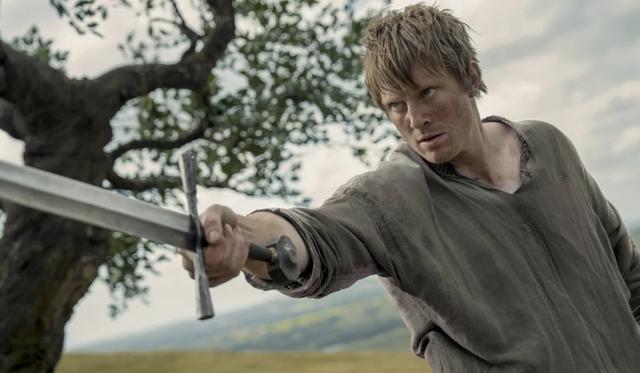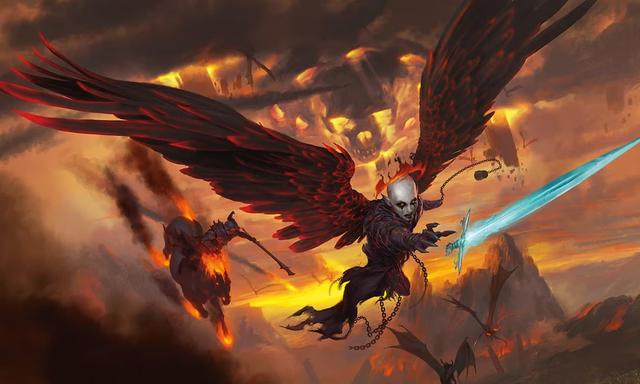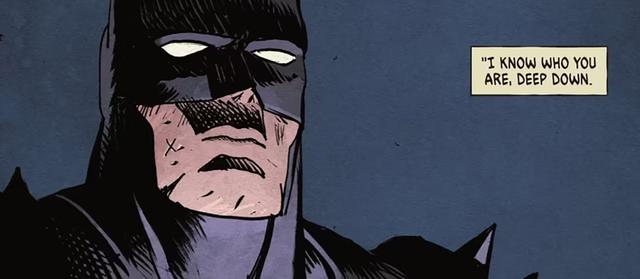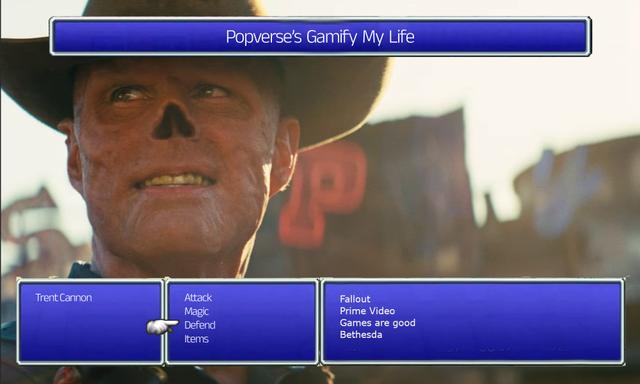If you click on a link and make a purchase we may receive a small commission. Read our editorial policy.
Why Arnold Schwarzenegger's The Running Man feels shockingly accurate — and even more disturbing — in 2025
The Running Man’s dystopian satire hits harder than ever in today’s reality-TV obsessed America.

Popverse's top stories
- The big ask George R.R. Martin had for HBO & A Knight of the Seven Kingdoms showrunner Ira Parker
- Frank Miller developed a Daredevil TV show in the '90s, and when they said no he did it in comics anyway
- Scream 7: release date, cast, Ghostface killers, trailer, and how it connects to the original movies
The first time I watched the original 1987 film adaptation of The Running Man, I lost my mind. This insanity took root from the very first frame of the movie, which tells us that the story we're about to see unfold takes place in 2017. 2017. Jesus H. Christ. I knew I had to buckle up right away, but I could never have known the odyssey that the Arnold Schwarzenegger film would take me on.
It's safe to say that in 2025, the 1987 Running Man film just hits differently than it did back when it originally came out. And the film's excesses, which may have seemed campy as recently as a decade ago, are now startlingly accurate to this reality TV hellscape that we're all trapped in. I mean, just look at who the president is. We are in hell!
The Running Man tells the story of a working-class man named Ben Richards, who wants nothing more than to live life with a shred of dignity under capitalism. Ben lives in an America that is marked by intense class inequality, and the only force that seems to unite the poor and the rich is the sense of fervor that they have towards the television show, The Running Man. The premise of The Running Man game is simple: incarcerated criminals must elude the gladiatorial "stalkers" hunting them down, and survive whatever is thrown at them. The winners of The Running Man, we're told, get to live happily on a tropical island (spoiler: they don't - the Network murders them after the cameras have cut).
At its core, The Running Man film is a critique of the hold that "The Spectacle" has in American culture under capitalism. It's a hunger that's grotesque, turning the people in the show's live studio audience into bloodthirsty fiends incapable of thinking critically about what they're looking at. Matronly grandmothers cheerily announce who their favorite stalker is as if they had been asked who their favorite Disney character is. All sense of humanity for the Running Men left the building long ago, in these people's eyes.
In 1987, the iconic Teenage Mutant Ninja Turtles cartoon debuted - and all our lives were changed. Watch this reunion of the original voice actors:
The Running Man spotlights the remarkably disturbing ability for humans to suspend their own sense of empathy, and elements of the show and the Network's other programs bear unsettling similarities with the reality competition shows of today. In one sequence in The Running Man, a clip from a show called Climbing for Dollars plays, where a man pulls his body up a rope (like you did in gym class) to snatch dollar bills along it, all the while trying to evade bloodthirsty dogs that watch him hungrily from the floor below, waiting for him to fall.
The Climbing for Dollars bit reeks of the way that ordinary Americans' financial instability has fueled the current onslaught of reality competition shows. For instance, when you watch shows like Outlast or Alone, where the object of the game is to quite literally outlast the other competitors in the backcountry, participants say that they're competing on the show because they need the money to pay for their mother's Alzheimer's treatment (Tina Grimm) or therapy for their autistic son (Mikey Helton). In the case of Mikey in particular, who puts his body and mind through torturous conditions in northern Saskatchewan for the sake of his son's future, it's stomach-turning.
And while Alone and Outlast have the decency to at least present the competitors' reasons for being on the show with a smidge of dignity, Prime Video's Beast Games is nightmarish. With a thousand people competing for $5,000,000 - a prize that some participants say can help their family escape "the poverty pipeline" for good - the competitors are put through increasingly demoralizing conditions just so MrBeast and his cronies can sheeplishly tell each other, "I'm gonna let you handle this one," when someone starts sobbing after being eliminated. MrBeast (at least he's being honest and upfront about who he is) stokes the flames of it all with an empty-eyed smile that wouldn't feel out of place in The Running Man.
The Running Man may be a bleak movie representing bleak cultural values. But at least we get the chance to see Arnold Schwarzenegger lead a class revolt and rip a Network camera off its hinges, saying, "You cold-blooded bastard. I'll tell you what I think of it. I'll live to see you eat that contract. But I hope you leave enough room for my fist because I'm going to ram it into your stomach, and break your goddamn spine!" before smashing the camera like the Hulk. If only someone could do the same with Jeff Bezos.
Get your wide-shoulder blouses and your Members-Only jackets, and go back in time with Popverse's Made in 87. Highlights include:
- Marvel Comics killed the X-Men in 1987 to reset the franchise - but it didn’t stick
- The Full House cast addresses some of the series’ biggest continuity errors
- How Spider-Man’s Macy’s Thanksgiving Day Parade balloon was saved by a fired Marvel boss — and Ronald McDonald
- How NBC panicked after Diane left Cheers — and why Kirstie Alley’s casting sparked a quiet battle inside the hit show
- How Bart Simpson was quietly toned down from being "so mean" before The Simpsons' first episode, as revealed by his long-time voice actor Nancy Cartwright
- The 1987 Justice League reboot that made superheroes weird, hilarious, and unexpectedly human
- How The Golden Girls became a staple at gay bars in the 80s
Follow Popverse for upcoming event coverage and news
Find out how we conduct our review by reading our review policy
Let Popverse be your tour guide through the wilderness of pop culture
Sign in and let us help you find your new favorite thing.
















Comments
Want to join the discussion? Please activate your account first.
Visit Reedpop ID if you need to resend the confirmation email.